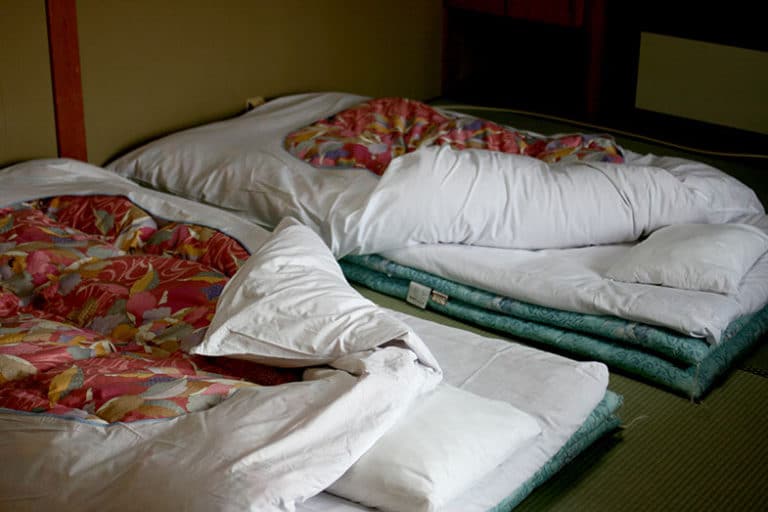Crying Yourself to Sleep: Good or Bad?
Disclosure: We may get commissions for purchases made through links in this post.
Your bedroom is a safe place where you can be yourself. It’s also where you can openly express feelings suppressed during the day. There are many reasons why one may cry themselves to sleep.
Before bed, it’s common for your mind to wander. You may think about the day, about stressful exams, about the loss of a loved one, or anything else that raises emotion. But, you may be wondering if this is good or bad.
Is crying yourself to sleep good or bad for you? Crying yourself to sleep can be good. There are emotional and psychological benefits from crying, and many feel better after waking up. Aside from puffy eyes, there seem to be no harmful effects from crying yourself to sleep.
Crying is as normal as sleeping and dreaming, but we don’t know much about what goes on while doing it. Let’s take a look at what goes on in the mind and body as this happens.
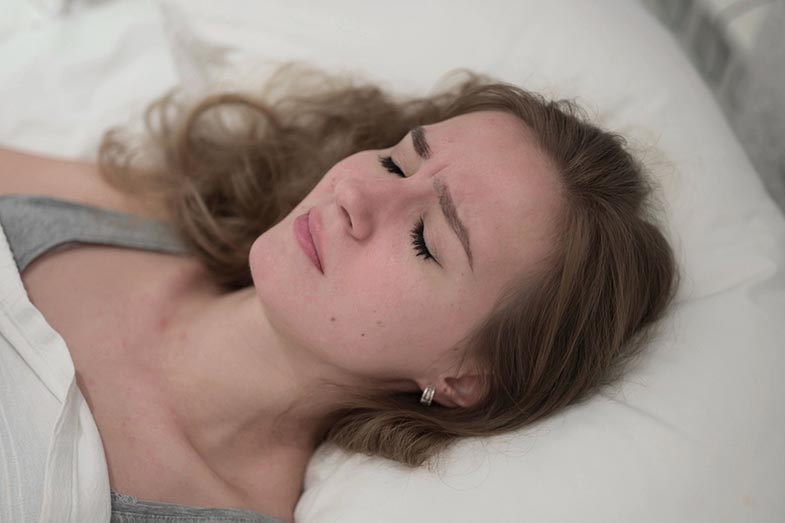
Why Do People Cry Themselves to Sleep?
Imagine lying down after a long day. Everything seemed to go wrong, and you’re tired beyond belief. You listen to the rain outside your window, adding to the damp mood and the noise in your brain. You’re just happy to crawl on to your bed, lie face down, and cry into your pillow. Soon enough, your tears settle, your breathing slows, and you find rest in sleep.
There are many ways to cope with those feelings – crying and sleeping being examples. Regardless, our mission is to find a way to release emotional build-up. This is called catharsis – the release of emotions that brings a feeling of relief.
Think about how you felt when you cried. You probably felt much better after releasing all the tension and tears. That is the experience of catharsis.
People cry themselves to sleep because crying is a self-soothing behavior. The body and mind feel more stressed than usual, and it’s looking for a way to lessen it. Crying is meant to soothe you from the thoughts and feelings lying heavily on your mind.
Why Do People Feel Like Crying Alone?
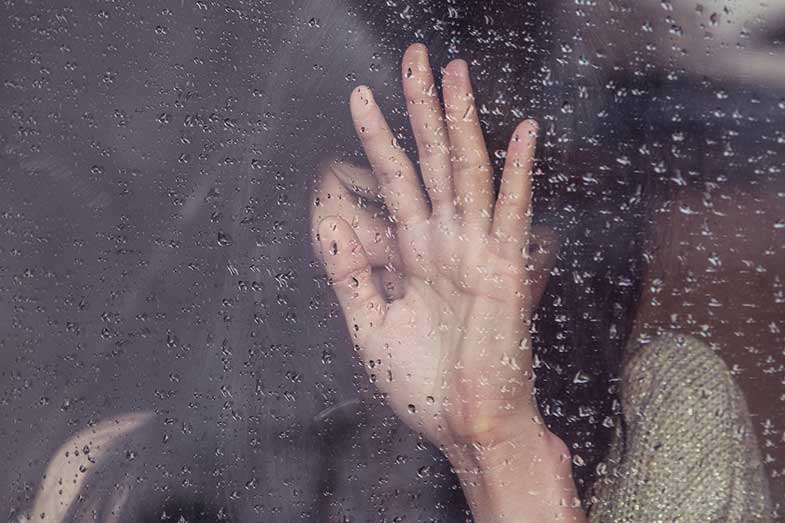
There are certain places we deem safe to cry in, and there are times we’d rather avoid it. It depends on who you are. Wanting to cry alone can mean that you want to take on your emotional challenge by yourself. It can be a sign of strength. It can also mean that you’re hesitant about what others might think.
Why Do People Feel Sad Before Sleeping?
Psychologists say that it’s normal for some people to think negative thoughts before sleeping. This is why you randomly remember embarrassing moments, mistakes, or other sad memories.
It’s a survival instinct rooted in the time of our early ancestors who always had to be vigilant to stay alive. In modern times, the brain translates these moments as “threats” to our career, relationships, and so on.
Lying down in bed at night adds another factor: our brains are idle. Because we’re trying to clear our mind to fall asleep, there’s room for random thoughts and memories to surface.
Why Do People Avoid Others When They Cry?
Crying shows distress and vulnerability. From an evolutionary standpoint, children cry so the adults can tell that the child needs help. But these cries can also alert natural predators.
Similarly, crying can signal your friends or parents that you’re not okay. But it can also open you to judgment or other adverse reactions from others. Going home and locking yourself in the room allows you privacy. It gives you control over who can see and hear you, so it’s not surprising that we sometimes choose to cry to sleep.
Why Are There People Who Don’t Feel Better After Crying Themselves to Sleep?
Some people feel better after crying because of the support they got from the people around them. For example, if you let your best friend see you cry, they can comfort you by being a shoulder to cry on. They could also help you think of things you can do together to get your mind off things.
Crying is rooted in emotions – the reason starts with overwhelming emotions, and the end goal is to make you feel better.
With that, crying yourself to sleep is a good thing because it allows you to express emotions without holding back. It soothes your mind and your body from the stress and tension built up in it.
Now that we gained insights from psychology, let’s understand the biology behind crying yourself to sleep.
Why Do You Feel Tired After Crying?
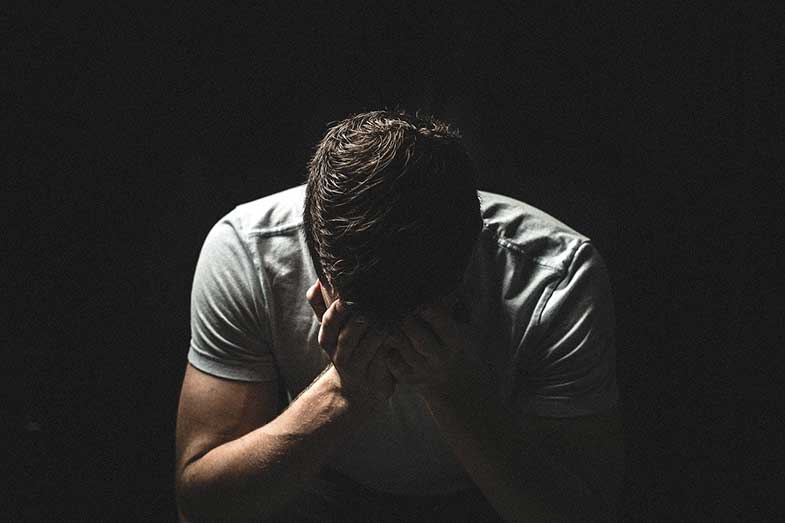
Crying can be exhausting for the body because of all the things going on at the same time. It’s also possible that you were mentally drained before that, so it’s not a surprise that crying can trigger sleep.
There’s one thing you should know about your body: it loves balance. When it’s stressed, it wants to be relieved from those feelings of distress. Thus, several parts of your body work to go back to the calm balance.
What happens in the body when you cry? Contrary to popular belief, your eyes don’t produce tears. These are created by your lacrimal glands, which settle comfortably above each of your eyes. Fun fact: there is a word coined explicitly for “the process of making tears.” It’s called “lacrimation,” named after the glands that make them.
Another fun fact: not all tears are created equal! Your body can release three different kinds of tears:
Types of Tears:
- Basal Tears maintain the moisture of your eyes.
- Reflex Tears clean your eyes when something gets in them.
- Emotional Tears carry stress hormones out from your body when you are emotional.
Take a look at the last one. Because these are related to emotions and hormones, this means that other parts of your body are also in action. Specifically, this involves the parasympathetic nervous system (PNS). Aside from the eyes and lacrimal glands, this includes your brain, other glands, and nerves. This set of organs affects your breathing, heart rate, and other functions related to survival.
When you cry, your PNS calms you down by working on slowing down your heart rate and regulating your breathing.
Let’s go back to the scene, given the new knowledge we just learned:
The day flashes through your mind. You remember the mistakes you made at work, how your coffee didn’t taste right, and the way you were late because you missed the train.
You have a lot of stress hormones going around your body, your muscles are tense, and your breathing and heart rate become faster. Everything is off balance.
Your brain sends signals to produce tears for your eyes. Unable to hold back, the tears flow, carrying stress hormones and other toxins within your system. Soon enough, you find sleep, and you wake up with relief.
How to Get Rid of Puffy Eyes After Crying
The eyes become puffy or swollen after crying because of the number of tears coming out.
Eyes can also become puffy because of swollen blood vessels. In that case, avoid rubbing your eyes. This can further irritate the skin.
- If you want to lessen the puffiness, use something cold. You can wash your face with cold water or dip your fingers in cold water then gently pat them around your eyes. You can also place something cold like an ice pack around the swollen area.
- Deep breathing can also help. Sometimes we may hold our breath while crying, so the area around the eyes might not be receiving as much oxygen as it needs.
If you fall asleep crying and you wake up with puffy eyes, it’s possible that some tears remained in your lower eyelids. This will subside as you blink through the day, but you can prevent this by keeping your head elevated using a plush wedge pillow such as the Avana Bed Wedge Memory Foam Pillow (view on Amazon).
Lastly, your eyes may be puffy from dehydration. Crying does make you lose water, so remember to drink around eight glasses of water every day!
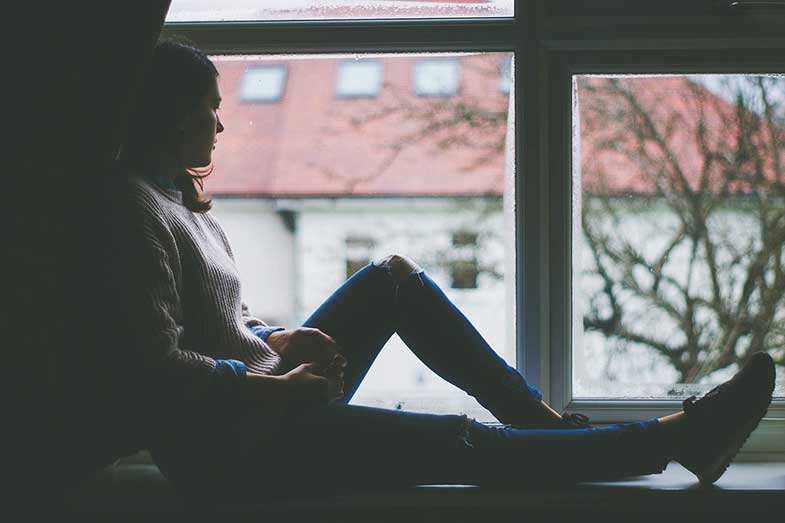
Conclusion – What Does Crying Yourself to Sleep Mean?
Crying yourself to sleep can be good for you because it can help you feel better. In the safety of your room, you are allowed to release pent-up emotions and express yourself freely. Falling asleep afterward gives you the rest you need after an exhausting day, even more so as you lie down on your warm, soft bed (view on Amazon).
While there are some things we know about crying, there aren’t many dedicated studies for it. In the end, it’s up to you to decide if crying yourself to sleep is helpful for you or not.


